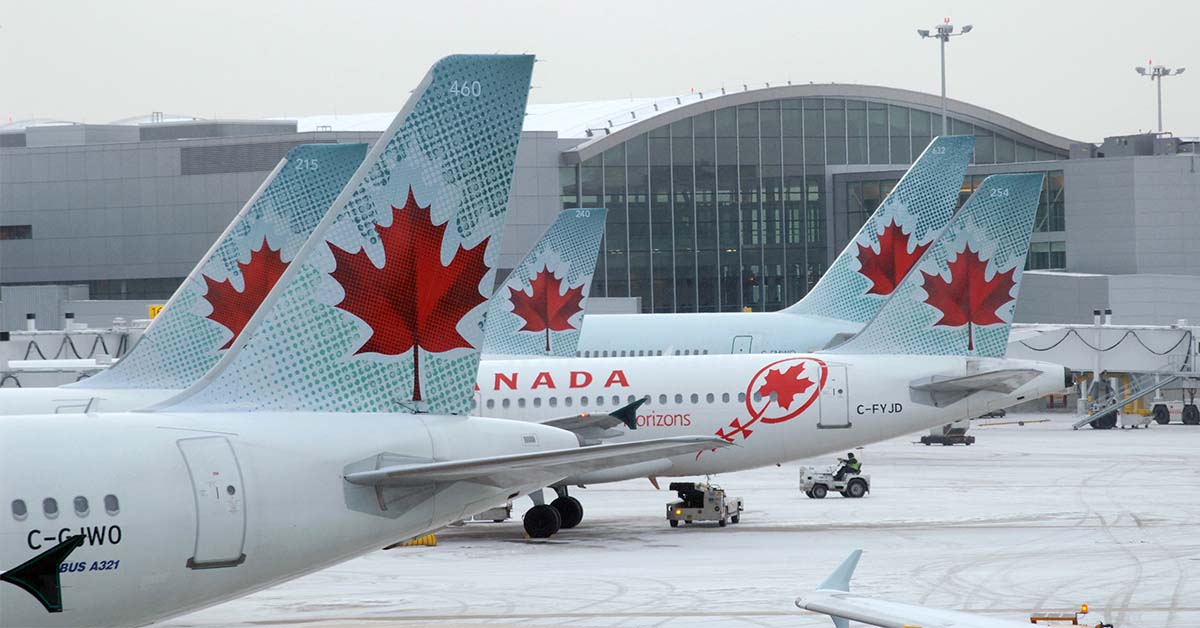Responding to a Ministerial Inquiry regarding the management of food allergies to peanuts, tree nuts and sesame seeds on Canadian airlines, the Canadian Transportation Agency (CTA) recently released a report.
The findings will be incorporated into future CTA actions which could include the “development of standards, either regulatory or voluntary performance-based ones, and guidance material to address the issue on a systemic basis.”
Food Allergy Canada (FAC), a stakeholder in the process, reported the following findings by the CTA and followed each with a salient recommendation:
Stock epinephrine
Air carriers are not required to carry “stock” epinephrine, an auto-injector (e.g. EpiPen®) that is not prescribed to an individual, but can be used by non-medical professionals to treat anyone experiencing a severe allergic reaction.
FAC’s recommendations:
Currently, many aircrafts carry vials of epinephrine, which require a medical professional to administer. We recommend all aircrafts carry stock epinephrine auto-injectors, which are meant to be used by non-medical professionals, to help treat a reaction.
Flight crew training
Train flight crews on signs and symptoms of an allergic reaction.
FAC’s Recommendations:
Mandatory training for in-flight staff, which would include how to identify signs and symptoms of an allergic reaction; what to do in an emergency (using a standard protocol); and proper use of epinephrine auto-injectors.
Buffer zone
Create a buffer zone consisting of the row the allergic passenger is in and not serving meals or snacks containing peanuts, nuts or sesame seeds in the buffer zone.
FAC’s Recommendations:
Retain buffer zones requirements currently in place with Canadian airline providers, until additional research is conducted to advise on the effectiveness of buffer zones.
In-flight announcement
Advise other passengers within the buffer zone that they must refrain from eating peanuts, nuts or sesame seeds or foods containing them.
FAC’s Recommendations:
Make a cabin-wide announcement, upon a passenger’s request, informing other passengers that there is someone on board with peanut, nut or sesame seed allergies. Passengers may be asked to refrain from consuming these products during the flight.
Communication with passengers with food allergies
Advise passengers who provide advanced notification of their allergies about safety measures they can take, such as carrying their EpiPens® and bringing their own food.
FAC’s Recommendations:
Upon booking and again at check-in on the day of travel, inform the passenger of the airline’s allergy policy, including a reminder for the person to carry their EpiPens® onboard and bring their own food for the flight.
Seat Area Cleaning
Allow passengers to pre-board to wipe down their seating areas.
FAC’s Recommendations:
Have specific protocols for airline staff in place for cleaning areas of an aircraft where a person with allergies is to be seated and provide passengers with the option of pre-boarding so they have the opportunity to clean the area themselves with cleaning wipes.
Website information
Have allergy policies on air carrier websites.
FAC’s Recommendations:
Have written policies and procedures in place for accommodating passengers with food allergies, which are easily accessed on air carrier websites. This provides travellers with food allergies the information they need to make informed decisions prior to booking their flight and plan accordingly.
We commend Food Allergy Canada on their recommendations and urge US carriers to follow suit by adopting similar protocols to help safeguard their passengers with food allergies.
Print or share this article







Thank you. Recently we had a horrible experience on United in both directions. After this has been my and our #1 airline and only airline since my daughter was diagnosed 15 years ago I am saddened to say they refused the announcement and I had to make it myself. We only fly every other year due to the fact that she is airborne reactive and biphasic (extremely anaphylactic) but we have to go see relatives and her medical expert Dr. Xiu Min Li at Mt. Sinai specifically for her allergy treatment to heal her body. We can’t go to Hawaii and we only love in CA, no flying over the ocean as it is too risky and now I can’t even get her on a plane to see her expert in hopes of curing/healing her allergy? Thank you for Food Allergy Canada for trying to make easy accommodation guidelines.
The problem is – not all severe food allergies are nuts!! What about other common allergens like dairy? We’ve been extremely limited in our ability to travel because of my child’s SEVERE anaphalaxis to dairy. Airlines – much like schools and most restaurants – are almost hostile about this food allergy. And it is the most common amongst children and children are no longer outgrowing it as before. These guidelines are meaningless if Health Canada continues to refuse to acknowledge that not all severe anaphylaxis is for nuts and seeds. All people with a food allergy have the right to protection and accommodation as well.